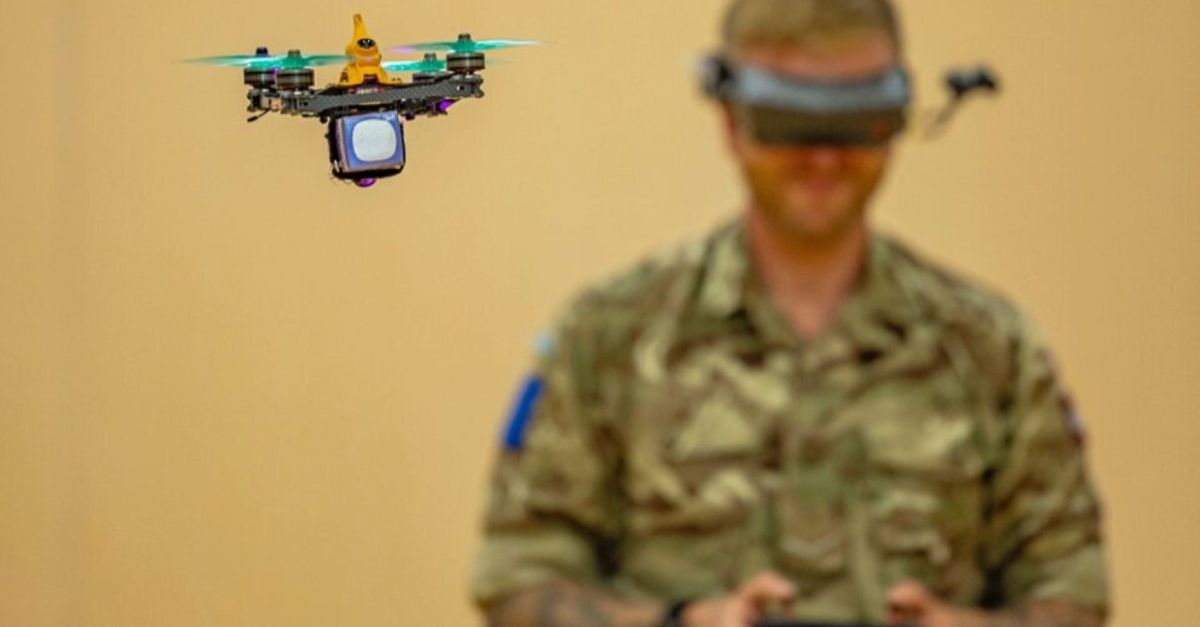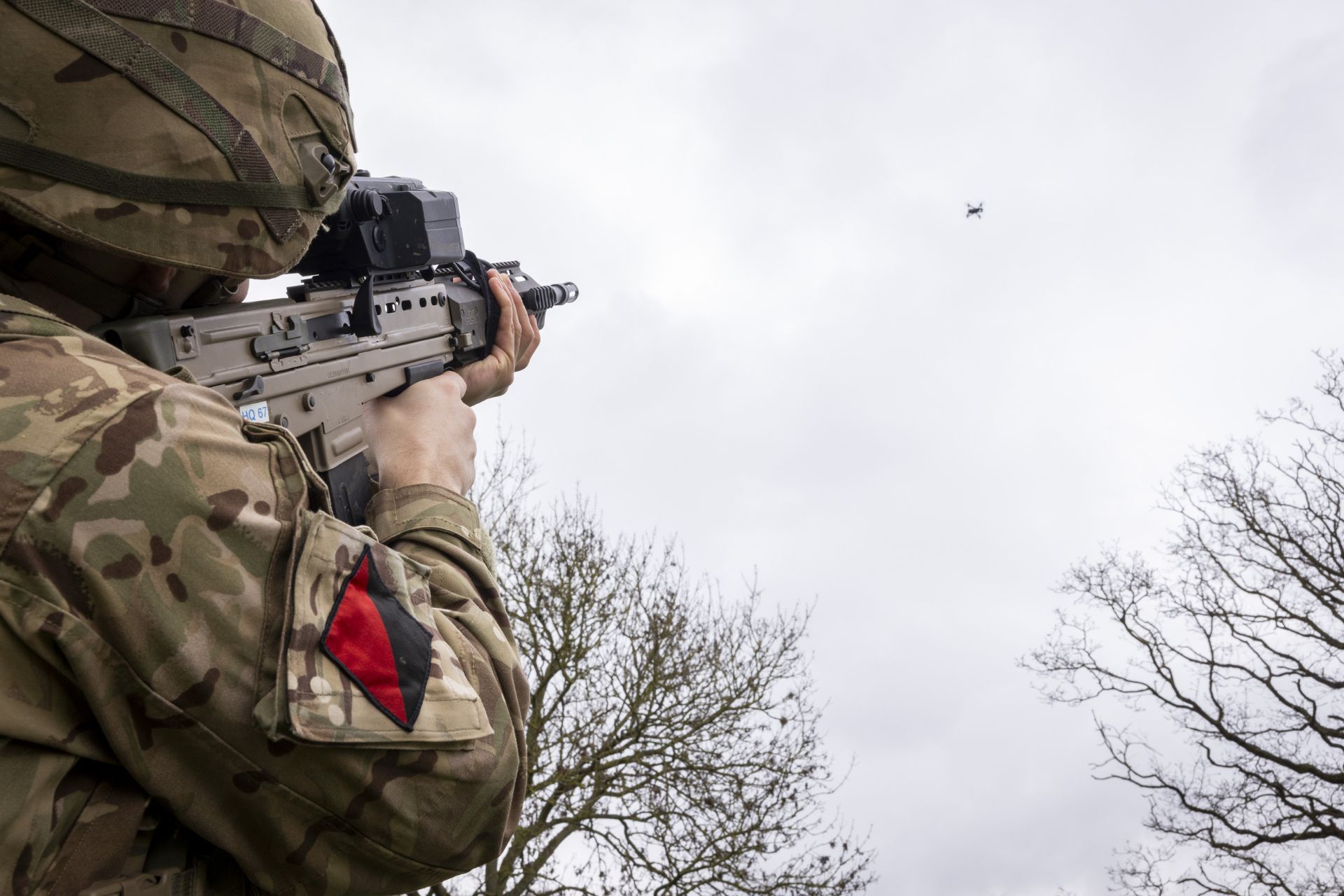Breaking News
British Army Launches a Top Gun Academy for FPV Drone Warfare Training.
The British Army is ramping up efforts to train its soldiers in piloting "kamikaze drones" for precision strike missions. These first-person view (FPV) unmanned aerial systems (UAS), already used effectively by Ukrainian armed forces, offer formidable strike capabilities on the battlefield, particularly against hard-to-reach targets.
Follow Army Recognition on Google News at this link

Paratrooper from the 2nd Battalion, The Parachute Regiment, who passed the screening flew a custom 5 inch drone using a first person view (FPV) goggles at Corporal Budd VC Gymnasium on the 16th of July 2024. (Picture source: British MoD)
FPV drones, piloted using virtual reality headsets and equipped with small explosive charges, stand out for their agility. Capable of hitting targets with great precision, these drones can, for instance, fly through an open hatch and explode inside an armored vehicle.
As part of Project Lewes, which aims to integrate new technologies to enhance the Army's lethal capabilities, British soldiers are being trained in this new skill at the jHub Drone Academy. This establishment, a kind of "Top Gun" for FPV drone piloting, is part of Strategic Command. The objective is to adopt innovative technologies more quickly and effectively, outpacing adversaries on the battlefield.
A New Capability for Ground Troops
Sergeant Adam Barnes, of the 2nd Battalion of the Parachute Regiment (2 PARA), highlights the importance of this new technology. He notes that an infantry unit equipped with FPV drones can use them to attack targets that would otherwise require artillery support or an airstrike. This shortens the kill chain and gives commanders more options. With their maneuverability and adaptability, these drones enable soldiers to strike targets effectively while remaining mobile.
Unlike traditional drones, FPV drones lack GPS and stabilization software, making them more challenging to pilot. However, this absence of technology also makes them less vulnerable to jamming, a strategic advantage in electronic warfare environments. British infantry units, which already use Parrot and Black Hornet drones for reconnaissance, see FPV drones as a significant advancement in broadening their tactical capabilities on the ground.

Lance Corporal Harry Hopes from 13 Air Assault Support Regiment, Royal Logistics Corps (RLC), observed a drone using the newly issued SmartShooter SMASH, Smart Weapon Sight Fire Control System, to trial out the Artificial Intelligence (AI) at Fingeringhoe Ranges on the 5th of March 2024.(Picture source: British MoD)
Integrating a New Skill
To integrate this new skill into the British forces, the 16th Air Assault Brigade recently organized a selection process at Merville Barracks in Colchester. The goal was to recruit drone pilots from already-trained soldiers to join the Drone Academy and develop their FPV UAS piloting skills. Sergeant Barnes, a drone expert, has established a drone racing club within 2 PARA to encourage soldiers to engage with this new technology. According to him, learning to pilot FPV drones is the hardest part, with tactical use being an additional skill to master.
A Technology in Full Evolution
This program comes as the British armed forces seek to strengthen their capabilities in both drone and counter-drone operations. The 16th Air Assault Brigade is at the forefront of this initiative, being the first to be equipped with the SMASH sight. This device mounts on the standard SA80 A3 assault rifle and helps soldiers shoot down enemy drones using image-processing software.
Meanwhile, FPV drone pilot training continues to advance. Soldiers practice with FPV drones specifically designed for training and use sophisticated simulators to hone their skills. With this innovative program, the British Army positions itself at the cutting edge of technological innovations, ready to transform the battlefield of tomorrow.
The adoption of this rapidly evolving technology is just beginning, but it already promises more effective and flexible military operations.


























